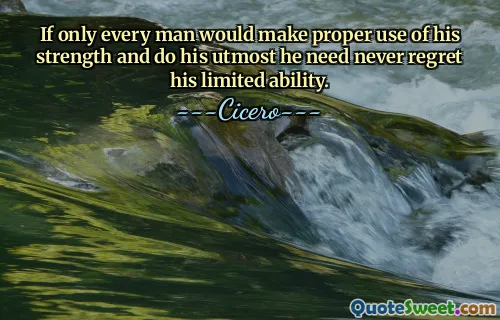Cicero, a prominent Roman statesman and philosopher, played a vital role in the politics and culture of ancient Rome during the late Roman Republic. His eloquence and oratory skills set him apart as a leading figure in both legal and political arenas. Cicero believed in the importance of justice, natural law, and the moral integrity of the state, advocating for a government that serves the common good. His writings reflect a deep concern for the challenges faced by the Republic, particularly amidst corruption and political strife. A significant aspect of Cicero's legacy is his philosophical works, where he integrated Greek philosophy with Roman thought. He expounded on ethics, politics, and rhetoric, emphasizing the role of reason and debate in achieving truth. Cicero's conception of justice as a universal principle influenced later philosophical discourse and laid the groundwork for European legal and political systems. His dialogues and speeches remain an essential part of the study of philosophy and rhetoric, showcasing his commitment to civic responsibility and moral integrity. Despite the eventual decline of the Roman Republic, Cicero's impact endured through his writings, which became a reference point for legal and political theory throughout history. His teachings on the importance of virtue, the rule of law, and individual rights resonate in modern concepts of democracy and governance. Cicero's life and work illustrate the struggles of a statesman navigating a tumultuous political landscape, making him a timeless figure in the discourse of political philosophy and ethics.
Cicero was a significant Roman statesman and philosopher whose influence extended throughout the late Roman Republic. Renowned for his oratory, he championed justice and public virtue, becoming a central figure in Roman politics.
His philosophical contributions, particularly in ethics and the nature of law, integrated Greek thought with Roman values, shaping future legal theories. Cicero emphasized reason and discussion as keys to uncovering truth.
Although the Roman Republic eventually fell, Cicero's legacy endured through his writings, which continue to inform modern concepts of democracy, governance, and civic duty.
More »
Today Birthdays
1729 -
Edmund Burke
1949 -
Haruki Murakami
1954 -
Howard Stern
1876 -
Jack London
1993 -
Zayn Malik
1951 -
Kirstie Alley
1863 -
Swami Vivekananda
1923 -
Alice Miller
1987 -
Naya Rivera
1825 -
Brooke Foss Westcott
1944 -
Joe Frazier
1951 -
Rush Limbaugh
1964 -
Jeff Bezos
1978 -
Jeremy Camp
1628 -
Charles Perrault
1856 -
John Singer Sargent
1970 -
Kaja Foglio
1953 -
Rick Santelli
1986 -
Gemma Arterton
1968 -
Raf Simons
1958 -
Christiane Amanpour
1966 -
Olivier Martinez
1996 -
Ella Henderson
1917 -
Maharishi Mahesh Yogi
1949 -
Ottmar Hitzfeld
1928 -
Ruth Brown
1968 -
Heather Mills
1946 -
George Duke
1968 -
Rachael Harris
1923 -
Ira Hayes

